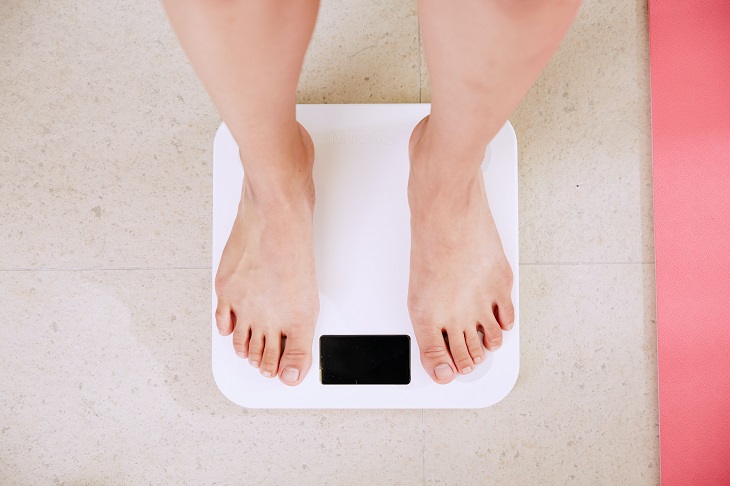THE DAILY DOSE
How Quality Of Sleep Can Influence Weight

A good night’s sleep involves a lot more than just sleeping for a set number of hours. Typically, it’s advised that adults get between seven and nine hours of sleep each night. While the time you spend asleep is a great jumping off-point when you’re looking to get quality sleep, it is nowhere near the entire picture of what is means to have high sleep quality. But what is sleep quality, exactly? And how is it connected to your bodyweight? Read on to learn all you need to know about how quality of sleep can influence weight.
What is sleep quality?
To understand sleep quality, it’s important to first understand what sleep is and everything that goes on within your body when you shut your eyes at night. The process of sleep may seem simple – close your eyes, sleep, wake up! – but it’s much more than that.
Sleep revolves around the body’s circadian rhythm, which is our internal clock. The clock itself follows a 24-hour period and affects the physical and mental changes that go on during that period. Importantly, the circadian rhythm controls your sleep–wake cycle, which determines how you sleep at night and how you awake each morning. It’s tied in with consistent, restorative patterns of sleep, so if your circadian rhythm is off, so is your sleep.
While you’re in the sleep state of the sleep–wake cycle, you go through various stages, each with its own important physiological purpose. The stages are:
- Stage 1: Light Sleep. This stage lasts only five to 10 minutes and primes you to get a good night’s rest by slowing down the body and mind.
- Stage 2: Secondary Light Sleep. This stage causes more changes in the body to prepare you for the next stage. Your eye movements, muscle and brain activity begin to slow. However, brain waves can spike sporadically during this stage, which experts believe helps retain long-term memory.
- Stages 3 and 4: Deep Sleep. These occur when the body is completely relaxed. Your breath rate, blood pressure, and body temperature are all decreased during this stage so that the body can release hormones designed to repair and produce tissue as well as moderate immune function.
- Stage 5: REM Sleep. This is probably one of the most well-known stages because of how often it is talked about. It’s the time in which the body processes and stores information through the act of dreaming.
These stages all have a specific role to play in our quality of sleep, but they are also symbiotic in the sense that a person must go through all the stages three or four times per night to get a good quality sleep.
How are sleep and weight related?
It may seem as though sleep and weight couldn’t possibly be related. After all, you’re not overeating in your sleep or slacking out on that exercise session! However, the two often go hand-in-hand because of the physiological processes that occur within the body during sleep.
The connection between sleep and weight has a lot to do with whether a person gets good quality sleep every night, or whether they continue to burn the midnight oil and avoid the shut-eye their body needs to be rested for the following day.
Recent research has found that sleep can play a role in obesity as well as during weight loss journeys. When looking at this from a sleep quality standpoint, the length of sleep as well as how “good” it is are both factors in weight.
How does bad sleep affect your metabolism?
Your metabolism is the process that turns the food you eat into energy. It also provides cells with energy they need to complete their basic functions. During sleep, the body’s metabolic rate, or the rate at which it burns calories for energy, is reduced by roughly 15%.
Some may draw the conclusion that because you’re burning fewer calories during sleep, you may be able to mitigate this by sleeping less during the night. However, the opposite can be true.
Even though you burn fewer calories during the night, if you don’t spend enough time in good quality sleep, your metabolism can actually malfunction when you are awake, leading to issues that can either drive weight gain or slow weight loss. This is because of how sleep can affect glucose as well as insulin sensitivity. When people do not get proper sleep on a regular basis, their body’s ability to use glucose stores effectively is hindered, as is their insulin response.
Does quality of sleep affect weight?
When looking at sleep in relation to weight loss programs, research has found that people who get better sleep on a regular basis are more likely to have weight loss success over those who don’t. This is likely because of the aforementioned effects that sleep has on the function of the metabolism.
What’s more is that when people are losing weight, they are often subject to muscle mass loss as well. However, if you incorporate good-quality sleep into your weight loss plan, studies have shown that you are more likely to lose more fat while preserving your muscle mass.
To sum up: while not getting enough good-quality sleep can be harmful to various areas of your health, it can also be harmful to your waistline.
Featured image by Towfiqu barbhuiya on Unsplash

